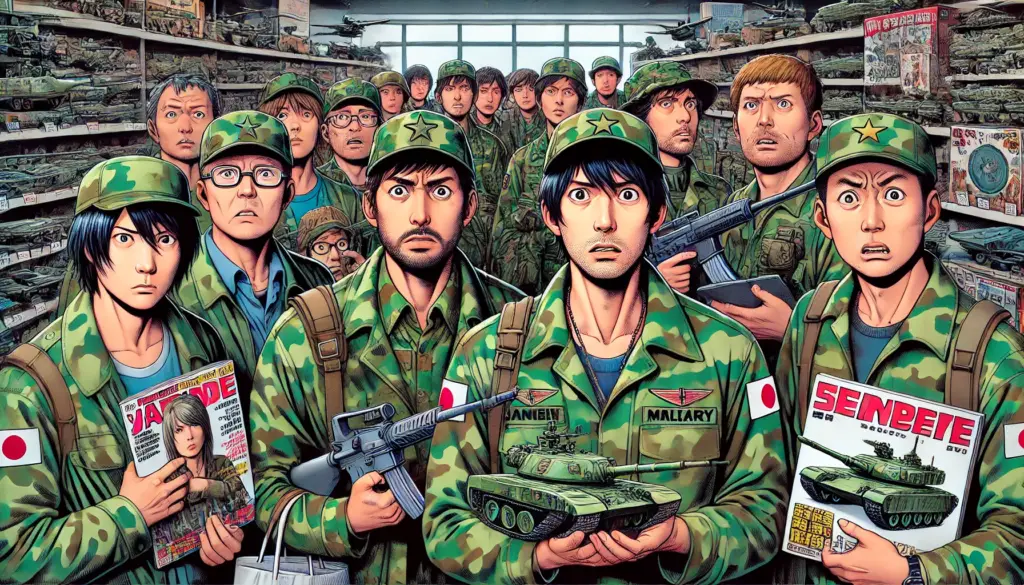
Introduction
Japan is known worldwide for its extremely strict gun control. Unlike in the United States, where firearms are embedded in the culture and widely owned, Japan has built a society where guns are almost absent from everyday life. However, recent moves by the police show that even in a country with one of the lowest gun ownership rates, the authorities remain vigilant. Police requested major flea market apps to prohibit the sale of empty bullet cartridges, raising questions: who was buying these items, and why?
Why Were Empty Cartridges Being Sold Online?
On Japanese flea market platforms such as Mercari and Yahoo! Auctions, sellers occasionally listed spent shell casings—metallic remnants of bullets after being fired. At first glance, they seem harmless because they no longer contain gunpowder or projectiles.
So who was buying them?
- Collectors and hobbyists 🏹
- Some Japanese enthusiasts collect military goods, airsoft accessories, or display items. For them, empty cartridges serve as decorations, props, or part of a historical collection.
- Cosplay and movie props 🎥
- In anime, video games, and films, realistic cartridges are often needed for authenticity. Props made from actual empty casings were attractive for those seeking realism in cosplay or independent film production.
- DIY or suspicious use 🔧
- Police worried that certain individuals might attempt to re-load cartridges illegally, using smuggled gunpowder or modified air guns. Although technically difficult, this risk could not be ignored.
Why Did the Police Step In?
Japanese police became concerned that the availability of empty casings online could support criminal activity, particularly because black-market firearms, though rare, occasionally appear in the country.
Authorities asked major platforms to voluntarily restrict or ban these items. From their perspective, even seemingly harmless components could contribute to the supply chain of illegal weapons. This reflects Japan’s principle of preventive regulation—addressing potential risks before they escalate into actual crimes.
Japan’s Gun Laws: Among the Strictest in the World
Japan allows civilian ownership of guns only in very limited cases:
- Hunting rifles and shotguns may be owned after rigorous background checks, psychological evaluations, police interviews, and training.
- Handguns are outright banned for civilians.
- Licenses must be renewed regularly, with police conducting home inspections.
As a result, gun ownership in Japan is astonishingly low: fewer than 1 gun per 100 people, compared to over 120 per 100 people in the United States.
This legal structure explains why even the sale of empty casings can attract government scrutiny.
Real Incidents Involving Guns in Japan
Despite strict laws, firearms occasionally surface in criminal cases:
- Yamaguchi-gumi yakuza conflicts 🔫
- Organized crime groups have historically smuggled or illegally manufactured firearms. Shootings between rival gangs have been reported, though incidents have declined in recent years due to police crackdowns.
- Shinzo Abe assassination (2022)
- Japan’s former Prime Minister was assassinated with a homemade gun crafted from pipes and electrical components. This tragedy shocked the nation and demonstrated how even in a highly regulated society, individuals may attempt to bypass restrictions.
- Random shootings
- On rare occasions, hunting rifles are misused. For example, some standoffs with armed individuals have occurred in rural areas, often involving licensed shotguns.
Each case reinforces public support for Japan’s uncompromising stance on firearms.
The Cultural Context: Why Japan Rejects Guns
Guns are not just a legal matter in Japan—they are cultural. Several factors contribute:
- Public safety trust: Citizens believe security can be maintained without widespread armament.
- Low crime rates: With few violent crimes, people do not feel the need to “protect themselves” with guns.
- Collective responsibility: Japan emphasizes group safety over individual rights to weapon ownership.
Thus, the idea of purchasing even harmless gun parts is viewed with suspicion.
The Future of Gun Regulation in Japan
The police request to ban empty cartridge sales is part of a broader trend of tightening online regulations. Just as knives, replica guns, and certain chemicals are carefully monitored, platforms are increasingly expected to filter listings proactively.
We can expect:
- Stricter platform guidelines to prevent any loopholes.
- Public debate on balancing collector hobbies with safety.
- Continued zero-tolerance policy toward anything that could be linked to illegal firearms.
Conclusion
Japan’s recent ban on empty cartridges in flea market apps may seem extreme from an international perspective, but it reflects the country’s philosophy of preventive safety. By addressing even small risks, Japan maintains one of the safest societies in the world when it comes to gun violence.
While collectors and hobbyists may lament the loss of access to harmless props, most citizens view the move as another step toward ensuring public security. In Japan, the absence of guns is not only a legal achievement but also a cultural consensus—and this consensus shows no signs of weakening.



















































